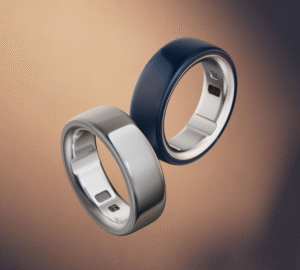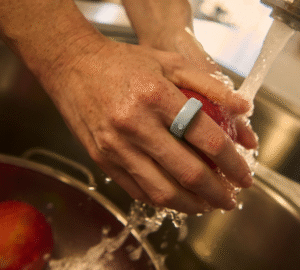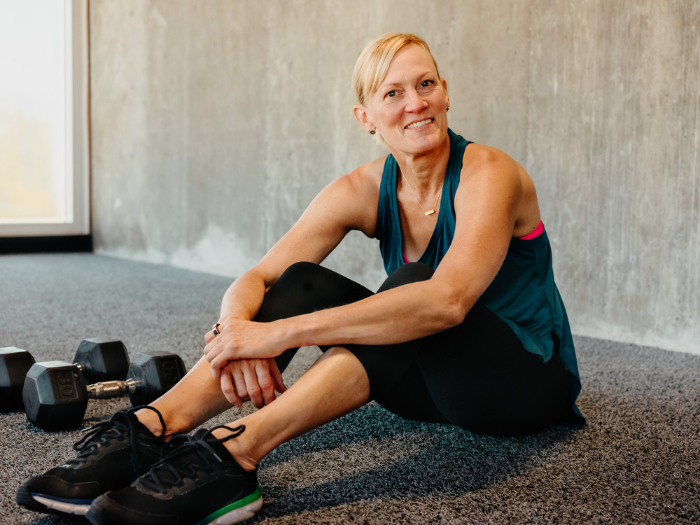Who: Rhonda C., 51, strength coach and gym owner, British Columbia, Canada
Surprising Oura insight: After losing her husband, Rhonda was surprised to see her grief materialize physically as a low HRV score in her Oura data. She also realized she was getting low amounts of deep sleep.
With Oura as her guide, as well as advice from healthcare professionals, she experimented with various strategies and habits to improve her sleep, menopause symptoms, and overall health. This ultimately set her on a path of healing from a traumatic event.
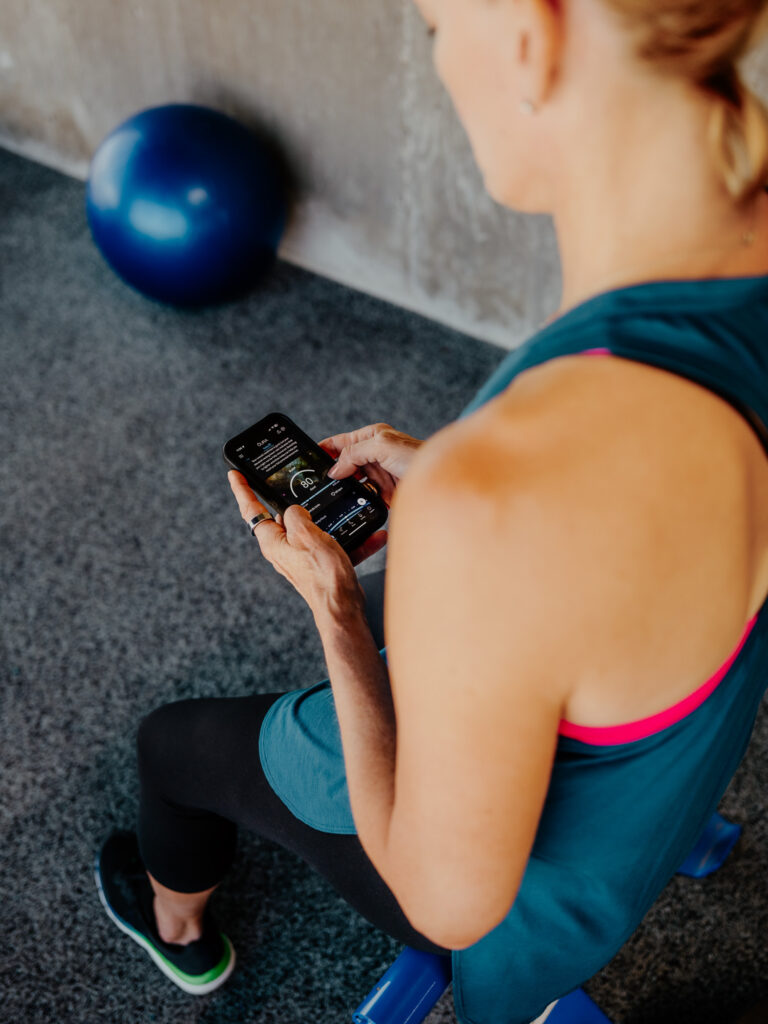
Tell us about your journey. What led you to Oura?
In 2015, I lost my husband. The event was very traumatic. He died in his sleep, and my two young boys witnessed it. As a result, sleep became a very unsafe, stressful experience for me. Each night was restless and every noise would wake me.
The lack of sleep left me feeling defeated, deflated, and exhausted. I knew I couldn’t continue like that, but I didn’t know where to start. It was extremely difficult to take the first step toward helping myself when I was also dealing with grief.
I purchased an Oura Ring in 2019, hoping it would help paint a clearer picture of what was wrong with my sleep and my overall health.
As it turned out, Oura was more than a first step in improving my sleep – it was the start of my healing journey to deal with my husband’s death.
What insights did you learn about yourself when you first joined Oura?
Prior to my husband’s death, I never had sleeping issues. I’d easily sleep eight or nine hours a night. After his death, it was like a light switch. Suddenly I couldn’t get a good night’s sleep. I wanted to get back there, and I decided I would use Oura as my launchpad to help me get there.
With Oura, I noticed that my restfulness, deep sleep, and REM sleep contributors were consistently low, and I was getting a maximum of six hours of sleep a night. The outcome was constantly low Sleep Scores.
I have been in the fitness industry since the early ‘90s, so I’m very aware of the importance of sleep — not only for your athletic performance but also for your general health. So this was proof I needed help.
I also noticed that my resting heart rate (RHR) was elevated and my heart rate variability (HRV) was low, which I came to find out was the body’s response to being under extreme stress.
“I wouldn’t have been able to get where I am in my healing if it weren’t for Oura.”
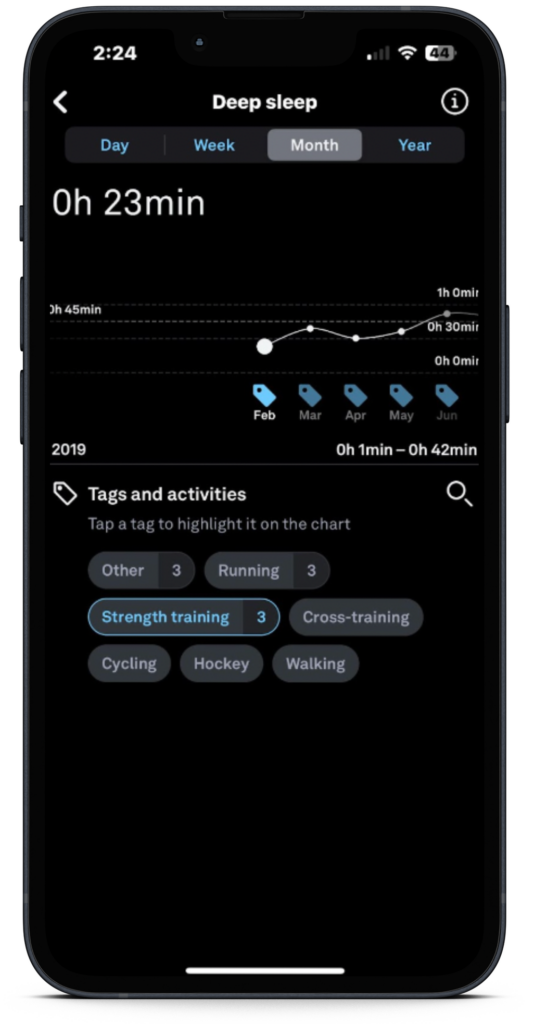
What steps did you take to improve your sleep with Oura?
1. I analyzed the data.
Having the data on my sleep and overall health is what informed my healing journey. Being able to pinpoint what was wrong with my sleep was the best place to start.
2. I experimented with sleep hygiene tools.
I used Oura to track which habits and tools helped my sleep, so I knew exactly what was working and what wasn’t. I started experimenting with what is generally recommended: a nighttime winddown routine, wearing blue light-blocking glasses, etc. I noticed some small improvements, but nothing drastic.
RELATED: 5 Ways to Upgrade Your Sleep Hygiene
3. I sought professional advice — and learned I was going through menopause.
Seeing the improvements in my sleep motivated me to speak with a doctor about other symptoms I was having, like hot flashes and unexplained weight gain.
Upon testing my hormones, a healthcare professional told me I had elevated cortisol levels and was going through menopause. This, combined with depression, was keeping me in a rut.
I didn’t have extreme menopause symptoms, which I attribute to the decades of my life being in great health. But combined with my depression symptoms, I felt like I was constantly in a fight or flight state.
To treat my menopause symptoms, I started hormone replacement therapy (HRT). For my depression, I started taking magnesium at night, adaptogenic herbs, like Ashwagandha (which is considered a natural antidepressant), and a cortisol manager from my doctor.
My REM sleep and deep sleep started to pick up, and I started to feel more energized during the day.
Without Oura, I would have stayed in that dark place – not knowing what the first step should be.
I wish more women would know that perimenopause can start in your 30s. You can deal with symptoms for years, without knowing why. If more women knew that was a possibility, they’d be able to recognize certain symptoms.
4. I began to exercise regularly, while working in sufficient recovery.
Once I started to have more energy, I started exercising more. I had always had a very active lifestyle, due to my job, but it was during my grief that I learned the true power of physical activity. It became my antidepressant. I would often spend the day crying, unable to do anything, but then I’d go for a run and feel like the fog was lifted enough for me to do my basic daily tasks.
Logging my workouts and runs on Oura motivated me to stay active and informed my recovery. Because of my high cortisol levels and lack of sleep, I was essentially in “fight-or-flight” mode the entire time, so it was important that I didn’t overexercise. I closely monitored my HRV and RHR to make sure my body was fully recovered between workouts.
READ MORE: 9 Science-Backed Herbs and Supplements for Better Sleep
5. I became my own health advocate.
Oura allowed me to advocate for my own health. It was my launchpad to process the loss of my husband and work on myself. I knew something was off, but Oura showed me exactly what that was. Now, I’m happy and back to sleeping well. I wouldn’t have been able to get where I am in my healing if it weren’t for Oura.
What advice would you give someone who is going through a hard time?
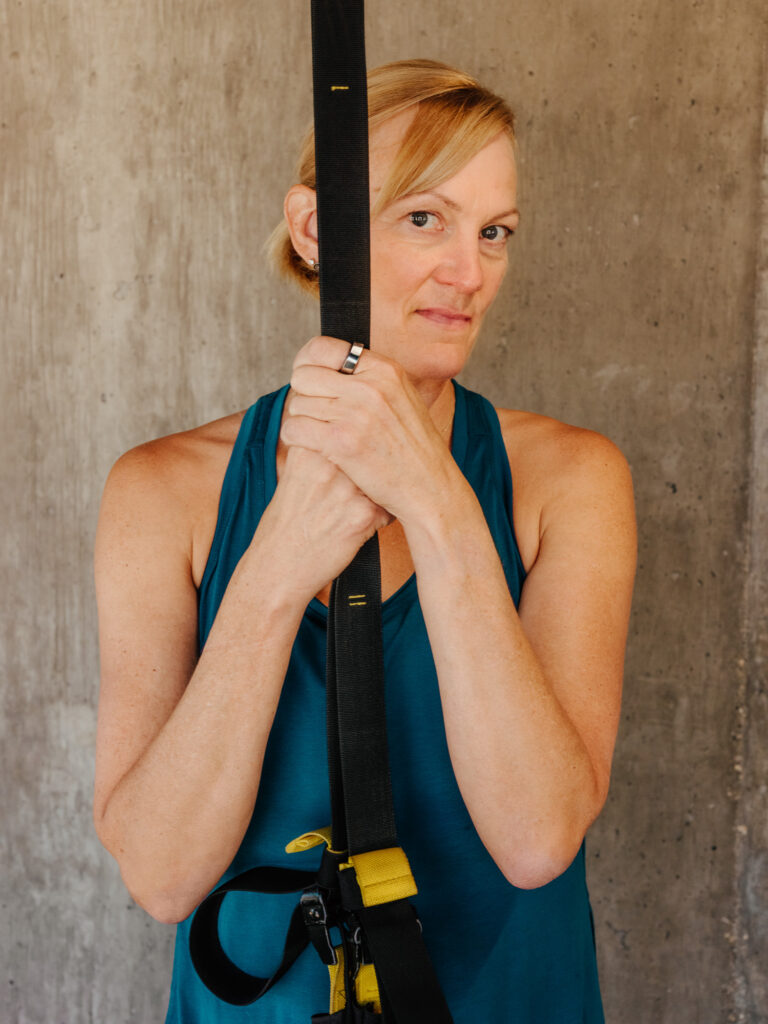 In society, we often throw around the “I’ll sleep when I’m dead” sentiment. But a good night’s sleep is the foundation of a good day, and a good life. Never underestimate the power of a good night’s sleep. Being sleep-deprived will affect every aspect of your mental and physical health. You could have the best diet and exercise routine, but if you’re not sleeping well, you will struggle.
In society, we often throw around the “I’ll sleep when I’m dead” sentiment. But a good night’s sleep is the foundation of a good day, and a good life. Never underestimate the power of a good night’s sleep. Being sleep-deprived will affect every aspect of your mental and physical health. You could have the best diet and exercise routine, but if you’re not sleeping well, you will struggle.
My lack of sleep was preventing me from bettering myself – not only as a trainer, but as a mother and business owner. I was defeated, deflated, and exhausted. Whether you’re going through grief, menopause, or depression, you’re more vulnerable to the effects of sleep deprivation. It’s more important than ever to make sure you’re sleeping well. And Oura can give you the data to help you steer in the right direction.
RELATED: How This Health Coach & New Mom Uses Oura To Prioritize Sleep and Track Her Cycle








